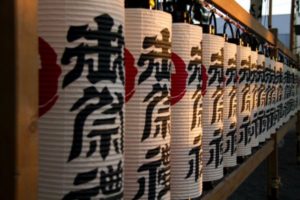In this article, we will explore why Studying in Kyoto Japan is the best for international students, considering its academic prominence, cultural immersion, quality of life, and other factors that make it the perfect destination for overseas learners. International students seeking a unique and culturally enriching educational experience often turn their eyes towards Japan. While Japan offers many excellent options for higher education, Kyoto stands out as an exceptional choice.
Academic Prominence
Top-Tier Institutions
Kyoto boasts two of Japan’s most prestigious universities: Ritsumeikan University and Kyoto University. Kyoto University, in particular, consistently ranks among the world’s best. Its commitment to high-quality research, diverse academic programs, and state-of-the-art facilities make it an attractive option for international students pursuing various academic disciplines. Founded in 1897, Kyoto University, often referred to as “Kyodai,” has played a significant role in Japan’s academic landscape, with numerous Nobel laureates and groundbreaking scientific achievements.

Research Opportunities
International students in Kyoto have access to a wide range of research opportunities. Whether your interests lie in the humanities, social sciences, natural sciences, or technology, you’ll find abundant resources and knowledgeable advisors to support your academic pursuits. Kyoto’s research projects reflect a blend of innovation and tradition. For instance, Kyoto University’s research in advanced humanoid robots seamlessly combines cutting-edge technology with traditional Japanese craftsmanship, producing robots that are not only highly functional but also aesthetically pleasing. In Kyoto, where academic excellence intertwines with cultural enrichment, international students may encounter multiple essay and project assignments. Adjusting to a new lifestyle can be challenging, but you can rely on Peachy Essay to ensure your academic success while studying in Kyoto.
Global Networking
Studying in Kyoto Japan provides international students with the chance to build a global network. The universities in Kyoto host a diverse student and faculty population from various cultural backgrounds, fostering an inclusive atmosphere that encourages intercultural communication and collaboration. Kyoto is not confined to its campuses; it is a global city. The city hosts international conferences, seminars, and workshops, offering students opportunities to engage with professionals and academics from around the world. In today’s interconnected world, having a global perspective is invaluable, and Kyoto provides a supportive environment for foreign students to enhance their global competencies.

International Students in Kyoto
Immersion in Culture
Historical Significance
Kyoto’s rich history as Japan’s capital for over a millennium has left it with an abundance of historical landmarks and cultural treasures. Foreign students can experience Japan’s cultural heritage through traditional tea ceremonies, awe-inspiring temples like Kinkaku-ji (the Golden Pavilion), and UNESCO World Heritage Sites such as the ancient wooden temple Kiyomizu-dera, which offers a breathtaking view of the city. These sites not only offer insights into Japan’s history but also convey a profound sense of cultural and spiritual continuity that is integral to Kyoto’s identity.

Cultural Heart of Japan
Language and Communication
For foreign students studying in Kyoto Japan provides an ideal environment. You’ll have ample opportunities for everyday conversations in Japanese, which can significantly improve your language skills. Many locals in Kyoto are bilingual or fluent in English, making it a great place to gain confidence in speaking Japanese. Kyoto’s welcoming atmosphere encourages language learning and cross-cultural interactions, whether you’re enjoying delectable street food at Nishiki Market or engaging in discussions with fellow students. Kyoto is renowned for its traditional arts and crafts, including calligraphy, tea ceremonies, and ikebana (flower arrangement). Participating in seminars and programs allows international students to experience these art forms firsthand and gain a deeper understanding of Japanese culture.
Flower Arrangement and Tea Ritual
Ikebana, or flower arrangement, is a unique way to express creativity and connect with the natural world. Kyoto boasts many ikebana schools, each with its distinct aesthetics and philosophy. By taking ikebana lessons, international students can learn new techniques and gain insight into the Japanese appreciation of natural beauty and simplicity. Another treasure from Kyoto’s cultural heritage is the Chanoyu tea ritual. This highly formal and precise discipline upholds peace, harmony, tranquillity, and respect. Studying the traditional tea ceremony in Kyoto, Japan provides foreign students with a deeper understanding of Japanese aesthetics, etiquette, and a meaningful cultural experience.

Ippodo Tea House in Kyoto
Safety
Kyoto, like Japan as a whole, is consistently ranked among the safest places in the world. Living in a low-crime environment provides international students with the peace of mind necessary to focus on their studies and exploration. Safety in Kyoto extends beyond physical security; it encompasses the overall well-being of the local population. Japan places a strong emphasis on social services and healthcare, ensuring that foreign students have access to top-notch medical care and support services when needed.
Public Transit
Kyoto boasts a well-developed and efficient public transit network, making it easy for students to navigate the city and explore the surrounding areas. This accessibility simplifies weekend trips and daily commutes to the university. Kyoto’s buses, trams, and trains are known for their reliability and cleanliness. Foreign visitors can even travel on JR trains for free with the Japan Rail Pass, making it an affordable option to explore Kyoto and other regions of Japan, from the serene landscapes of Hokkaido to the bustling streets of Tokyo.

Public Transport in Kyoto
In conclusion, Kyoto offers an exceptional educational experience. It combines outstanding academic performance, cultural immersion, a high quality of life, and a welcoming atmosphere. Whether you are drawn to the city’s rich cultural scene or academic excellence. Furthermore, for historical significance, studying abroad in Kyoto, Japan is an investment in your education. Moreover, it can be a life-changing adventure in the heart of Japan. With world-class institutions, a profound cultural legacy, a secure and convenient environment. There are more dedicated services for international students. Kyoto is an excellent choice for anyone seeking a fulfilling educational journey in Japan.

Night Life in Kyoto
FAQs
- Can I work part-time while studying in Kyoto as an international student?
- Yes, international students in Japan, including Kyoto, can work part-time during their studies. However, there are certain restrictions and regulations to be aware of.
- What scholarships are available for international students in Kyoto?
- Kyoto offers various scholarships for international students, including those provided by the Japanese government, universities, and private organizations. Eligibility criteria and application procedures may vary. Read more about Scholarships here.
- Is it expensive to live in Kyoto as a foreign student?
- While living costs in Kyoto can vary. It is generally considered more affordable than some other major cities in Japan like Tokyo. However, the cost of living depends on your lifestyle and accommodation choices. You can check out this guide on How to Survive on a Student Food Budget in Japan.
- Are there English-taught programs available at Kyoto’s universities?
- Yes, many universities in Kyoto offer English-taught programs for international students. These programs cater to students who may not be proficient in Japanese.
- What are some popular cultural festivals in Kyoto that international students can participate in?
- Kyoto hosts numerous cultural festivals throughout the year, including the Gion Matsuri and Hanatoro. These festivals offer international students a chance to immerse themselves in Japanese traditions and celebrations.
















































